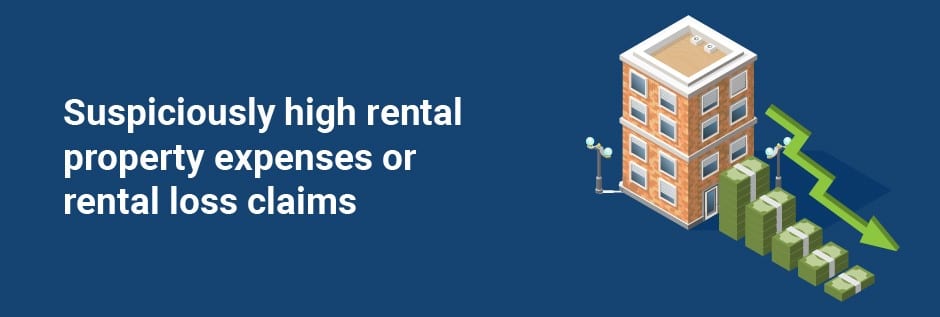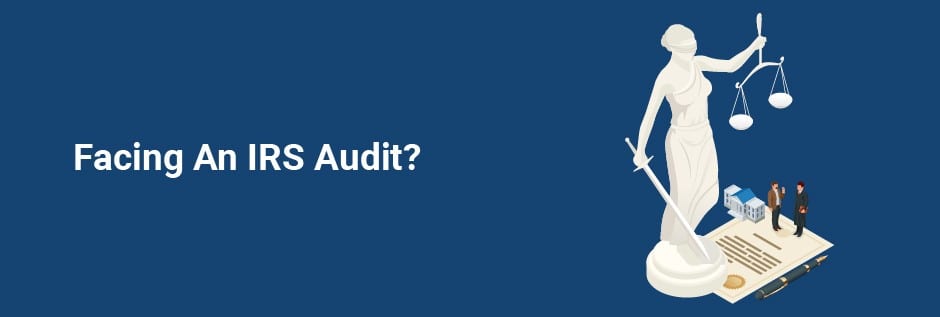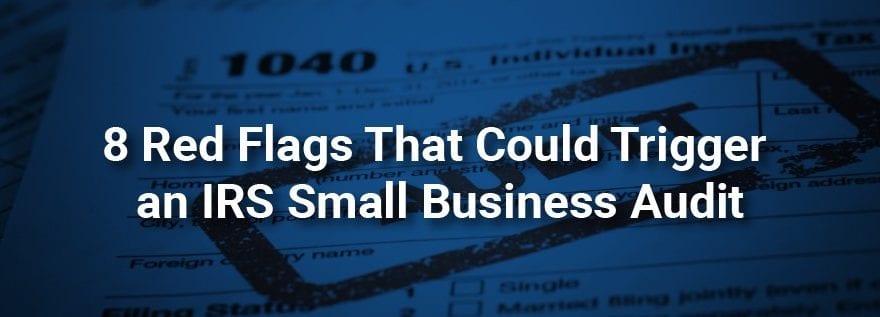Last year, the Internal Revenue Service (IRS) audited just over one million returns. That’s a lot less than the 1.74 million returns they audited in 2010, but it’s still no fun for the millions of taxpayers that had to go through the process!
Overall, the IRS audits only about 1 in 200 returns. But some returns attract much more scrutiny than others. The IRS doesn’t want to waste its time getting blood out of a stone, and so they focus their investigative efforts on those returns and taxpayers that are statistically more likely to have discrepancies, such as small business owners.
Common Red Flags
Here are some of the major ‘red flags’ that can increase the likelihood of attracting IRS attention in the form of a small business audit:

1) Higher Personal Income
While the average taxpayer has a 1-in-200 chance of getting audited in any given year, those with incomes of over $1 million are looking at odds of 1-in-20. That is, if your income is greater than $1 million, the probability of your return being selected for audit is ten times greater than it is for the average taxpayer.
At the same time, if you have an income of less than $200,000, the chances of your return being audited falls to just 1 in 154, based on 2016 numbers. But if your income was above $200,000, your chances of being audited increase to 1.70 percent, or 1 in every 59 returns.
So, if you’re showing an unusually high personal income, you are more likely to face an IRS small business audit. If you own a flow-through entity, such as an S-Corporation or LLC, the audit is likely going to extend to your New Jersey business as well, and any other business interests you own.
The same is true of partnership income. If you are showing substantial income from a limited or general partnership, and the IRS flags you for an audit, the audit very well may extend to the partnership – especially if you are the managing general partner in a limited partnership and your K-1s are showing a lot of suspicious losses.

2) Owning an All-Cash Business
Owners of businesses like restaurants, food trucks, convenience stores and other businesses that deal a lot in cash sometimes fall to the temptation to take cash transactions “off the books” in order to conceal income. Your credit card processor submits a 1099-K to the IRS detailing the credit card payments they’ve made to your business account. The IRS has a pretty good feel for how much of a business’s receipts are going to be in cash vs. credit cards, checks and other forms of payment. If your numbers are way out of whack for similar businesses in your industry, you can expect some additional IRS scrutiny.

3) Suspiciously Low Salary Income for Corporation Owners
This is a common red flag for New Jersey business owners. Some business owners try to report as much income as possible as dividend income and little or no salary income in order to sidestep FICA taxes. The IRS is wise to this trick, and will often look closely at business owners who report W-2 salary as suspiciously low, compared to the size and profitability of their businesses.
Some people fill out their Schedule C (Business Profit and Loss) forms to show just enough income to qualify for an earned income tax credit or other lucrative tax credit, but not much more. This also attracts IRS scrutiny.

4) Large Cash Transactions
Merchants must report cash transactions in excess of $10,000 to the IRS. Banks also report these transactions. Failure to report these transactions, or repeated transactions just below the threshold, could IRS interest.

5) Reporting Net Losses in Multiple Years
Reporting net losses in more than two years out of any given five-year period may attract a small business audit – especially for sole proprietorships, and any time business owners are trying to flow-through those losses to their personal income tax returns.
To qualify as a bona fide business, as opposed to a hobby, your enterprise needs to show a profit in at least three out of five years. The IRS presumes that if you can show a profit at least three out of five years, you are running a bona fide business set up to make a profit. Otherwise, the IRS will look closely at your claimed deductions, and you could run afoul of hobby loss rules, and get some deductions disallowed. See IRC 183 for more information.

6) Net Operating Loss Carrybacks or Carry-Forwards
Business losses can be carried back or carried forward to apply against income in other years. But the IRS is interested in these transactions. Be sure to document any such carrybacks or carry-forwards carefully to withstand an IRS small business audit.

7) Excessive Deductions for Vehicle Use
The IRS looks closely at 100 percent business deductions for car expenses.
First, you can deduct the IRS standard mileage rate for business use – 54.5 cents per mile for tax year 2018 (as of this writing, the 2019 mileage deduction has not been released yet.) Alternatively, you can deduct your actual vehicle operating expenses, including fuel, maintenance, repairs, and upkeep. You cannot deduct both. If you try, you may attract IRS scrutiny.
Secondly, be sure to carefully document the miles you drive and their purpose, and make sure the mileage you claim is genuinely deductible. For example, you can deduct expenses attributable to miles you drive to meet a client at a remote location, but you cannot deduct for mileage incurred driving from home to your office. That’s a personal commuting expense, not a business expense.

8) Suspiciously High Rental Property Expenses or Rental Loss Claims
Rental losses are unusual and attract IRS attention. The IRS may look carefully at any deductions you make for depreciation, and at attempts to deduct improvement and renovation expenses entirely in the first year, rather than spreading these deductions out over a period of years under MACRS rules.
You can deduct repair expenses that are designed to restore the property to a functional condition in the year in which you incur them, but you cannot take a first-year deduction for improvements and renovations designed to enhance the value of the property. These you must deduct over a period of years, depending on the project.
Labor expenses on capital improvement projects must also be amortized over the life of the repair. Failure to adhere to these rules can trigger IRS scrutiny.

Facing an IRS Small Business Audit?
If you’ve received a notification for a pending small business audit from the IRS, the tax attorneys at Paladini Law are ready to work for you. Attorney Brad Paladini has spent his entire career helping individuals and businesses solve complicated tax problems. Brad is highly trained to negotiate and fight with the IRS on your behalf. Schedule a consultation to have your case reviewed and explore your legal options. Contact Paladini Law through our online form, or call (201) 381-4472 today.
Also Read:
- IRS Interest Rates 2019 for Overpayment and Underpayment
- IRS Audit Reconsideration
- New Jersey Tax Audits



